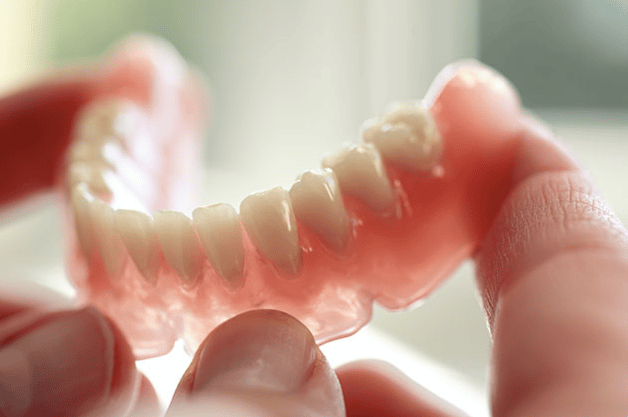
For seniors on a fixed budget, healthcare can be a difficult matter to discuss. Few subjects spawn as much stress and concern in an older person’s life than the cost of maintaining their health. If that sentiment rings true for you or a loved one, you’ll no doubt appreciate the following five tips for saving money on the one aspect of healthcare that Medicare doesn’t include: dental care.
1. Focus on prevention
As the old adage says, an ounce of prevention is better than a pound of cure. When it comes to maintaining oral health and saving money that will otherwise go to paying for fillings, extractions, or dentures, no other actions will have a bigger positive impact than these basic self-care habits:
- Brushing your teeth thoroughly at least twice a day with a soft-bristled brush
- Flossing between your teeth correctly at least once each day
- Rinsing with an antibacterial and/or fluoride-fortified mouthwash at least once a day
2. Join a dental discount plan
Since Medicare doesn’t include dental insurance, some seniors forego dental insurance and pay out-of-pocket for whatever dental services they need. The full retail cost of those services can add up quickly.
However, when it comes to dental discounts for seniors, there is an alternative to insurance that can help people save. By joining a dental discount plan, seniors can get access to significantly discounted quality dental care through a nationwide network of dentists, all for a very low monthly membership fee.
As an example, the Dental Solutions plan by DenteMax offers 20%-50% off both general and advanced dental services for just $9.95 per month for the entire household.
3. Prioritize dental appointments

"Since Medicare doesn’t include dental insurance, some seniors forego dental insurance and pay out-of-pocket for whatever dental services they need."
Once you have a dental discount plan in place that makes quality dental care affordable, it’s important to take full advantage of that opportunity.
Along with brushing, flossing, and rinsing, the last oral health habit you need to maintain is visiting the dentist once every six months for a professional cleaning, x-rays (as needed) and a full examination. It’s at this vital visit that the dentist and hygienist can ensure your teeth are in the best possible condition, that they are free of destructive plaque and tartar, and that there are no signs of impending dental, oral, or overall health issues that need to be addressed.
By being sure to prioritize this semi-annual visit - along with your daily habits - your teeth maintain the best chance of good health. This ends up saving money in the long run, because it means less visits to the dentist to repair or treat major issues that could have been caught earlier.
4. Don’t ignore dry mouth
Xerostomia, also known as dry mouth, is a condition many seniors face. Dry mouth is a common side effect of many prescription drugs and can also be a symptom of a several health conditions.
This may seem like nothing more than a minor inconvenience, but it can have serious repercussions involving digestive health and oral health.
Saliva acts as a lubricant, disinfectant, and general mouthwash that’s constantly helping keep your teeth and gums clear of harmful bacteria. While it’s certainly not sufficient to protect your mouth on its own, without it, your teeth and gums far more susceptible to bacteria and resulting gum disease, infections, and tooth decay.
All these potential results of dry mouth can cause complications, and may cost money to treat. The initial issue of dry mouth, on the other hand, is fairly simple and inexpensive to control. While there are several treatment options available to help resolve the condition, drinking plenty of water and staying vigilant about your oral health self care can do wonders in preventing its worst consequences. For more tips, see the one thing seniors must understand about oral health.
5. Invest in quality dentures

Despite even the best oral health self care and quality professional help, many seniors still end up requiring some form of dentures.
And, dentures can be expensive. Some seniors with little extra income may seek out the cheapest alternative. While it’s certainly possible to save some money up front, you could risk losing that savings treating the result of ill-fitting dentures in the long-term. Consider using a dental discount plan to help lower the cost of quality dentures by up to 50% to avoid problems down the road.
If you or your parent is in need of quality dental care at a reasonable price, take the first step to see how much you could be saving with a dental discount program.

